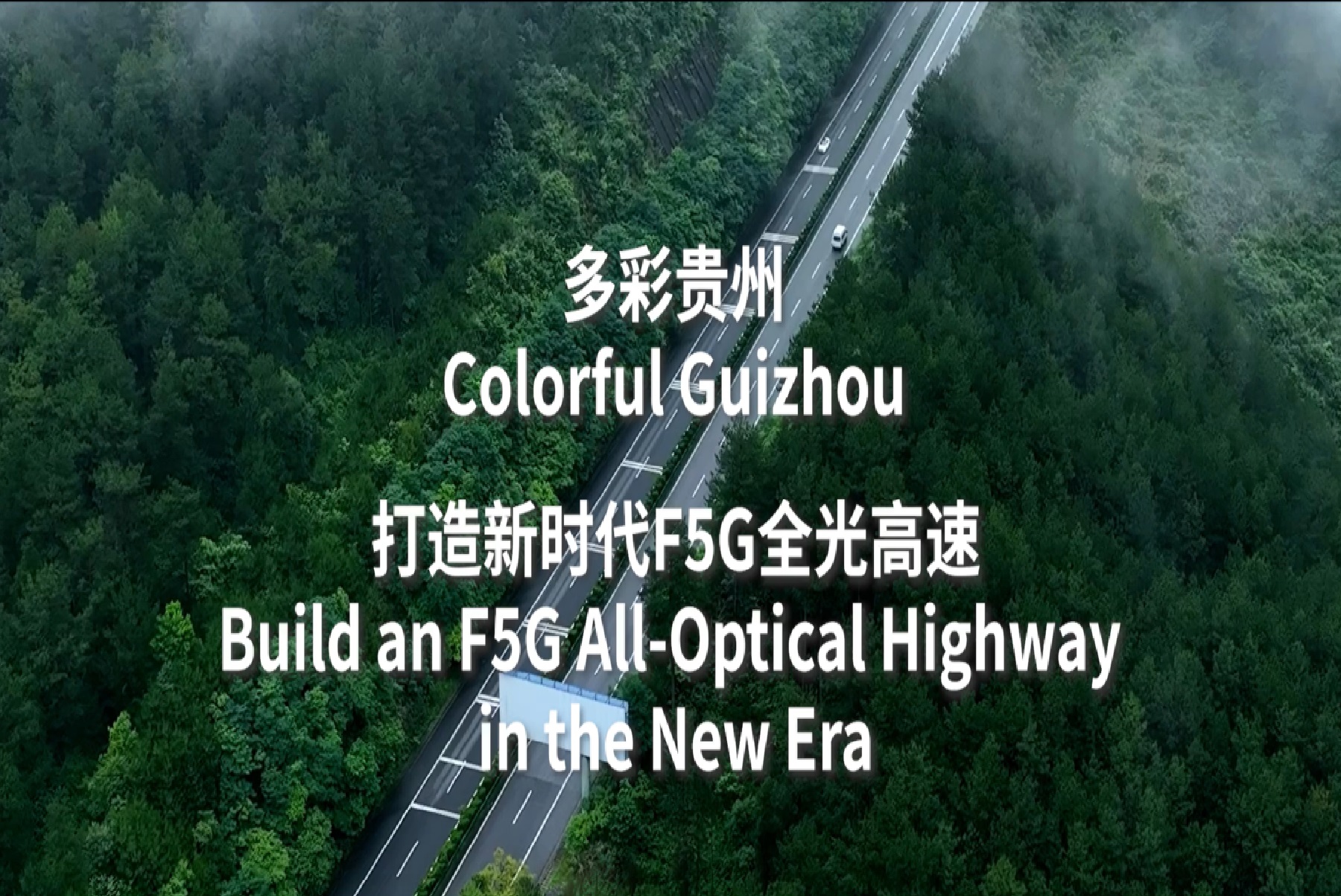Guizhou Highway: Lighting Up Smart Transportation with F5G
This site uses cookies. By continuing to browse the site you are agreeing to our use of cookies. Read our privacy policy>
![]()
Produits, solutions et services pour les entreprises

The province of Guizhou in southwestern China is famous for its natural beauty, with mountains and hills making up 98.7% of the province's land area. This unique topography, however, has made road transportation a major challenge for millennia, hindering the region's economic development. Improved road infrastructure would not only enable the transportation of people and goods in Guizhou, but spur development of its tourism industry and the economy at large.
In December 2001, the first highway in Guizhou was completed and became fully operational. In 2008, the total mileage of Guizhou highways was less than 1000 km, but by the end of 2023, this figure had reached 8784 km, ranking fifth in China. This rapid improvement marks Guizhou's transformation into an important land transportation hub in southwest China. Over the past 20 years, the province has evolved from an isolated mountainous region to a highly connected one.
Guizhou has a forward-looking roadmap for the development of smart highway services. It is using innovative technologies such as F5G to transform transportation network infrastructure and enable the integration of cutting-edge technologies such as big data, cloud computing, and artificial intelligence into its transportation system.
Transportation in Guizhou needs both rapid and quality development. In 2021, the Guizhou Provincial Government issued an outline for transportation development, stating the need for an efficient, comprehensive, and advanced smart transportation system that integrates cutting-edge technologies. The outline highlighted the importance of using digital transformation to achieve smart transportation. In 2022, Guizhou released a transportation system development plan that called for "transportation digitalization projects", "a transportation data system", and "smart transportation development".
Guizhou Expressway Data Operation Co., Ltd., a highway construction and O&M agency, uses Huawei's F5G all-optical communications network solution for long-term development of smart highway services. It is using this solution to upgrade the province's highway communication networks.
Top-level architecture, unified planning, and layered and flexible construction: Numerous network standards need to be followed during network construction. Moreover, the networks for the backbone and road sections need to be constructed separately. Network structures are complex and O&M is difficult, but thanks to F5G's security and reliability, ultra-high bandwidth, and intelligent O&M, Guizhou Expressway Data Operation Co., Ltd. has been able to plan a target network spanning from the provincial department to all toll stations. Through unified planning, the provincial backbone technology is extended to road sections to ensure the consistency of technical standards. Bandwidth is planned appropriately, network-wide resources are managed in a unified manner, and hierarchical construction is implemented to enable long-term service expansion.
MS-OTN technology for construction: Guizhou chose F5G-based MS-OTN devices for network construction. These devices enable ultra-high bandwidth, low latency, high reliability, and transmission of diverse services such as SDH, MPLS-TP, and OTN. This provides assurance for highway data transmission.
Optimized network structure and higher network reliability: On the live network, most segments are constructed with single-ring structures and active/standby co-routing. A single point of failure on optical cables can cause service interruption, which is dangerous. Network reliability can be improved by using OTN on the segments to fully utilize the channel resources of existing sites and backbone OTN and provide redundant routes for the segments.
The Guizhou highway network system consists of three layers: a core backbone layer, a regional aggregation layer, and a toll station access layer. Through unified construction and management, a more efficient, convenient, and secure smart transportation system has been built.
Guizhou's highway communications transmission system was constructed using Huawei's leading OTN technology, which has been put into use at the backbone layer and aggregation layer. The system contains 3 backbone transmission WDM ring networks and 20 aggregation ring networks. Guizhou's highways traverse rugged mountains with bridges to form a comprehensive highway network. This greatly shortens travel times and distances, stimulates the local economy, and facilitates the province's strategic vision of smart transportation development.
Guizhou Expressway Data Operation Co., Ltd. and Huawei work together to ensure the stability of system device platforms. They explore innovations in highway informatization, data awareness, supported networks, data centers, operations management, dispatch and command, travel services, and decision-making. The solution supports real-time monitoring of all road networks and real-time transmission of road condition information through a sharing platform. The solution significantly improves the travel experience for the general public by informing them of service areas and accident road sections.
With F5G networks, the Guizhou highway communications network can monitor road elements such as passing trains quickly and accurately, with guaranteed data communication quality. Through highway informatization and intelligent upgrades, Guizhou Expressway Data Operation Co., Ltd. has laid a solid foundation for the digital transformation of highway infrastructure. In the future, Guizhou's transportation industry will further its digital and intelligent transformation, providing smart transportation for the betterment of the people of Guizhou and beyond.
Related link:: https://e.huawei.com/en/solutions/enterprise-optical-network/industry-optical-transport-network/road-optical-comm